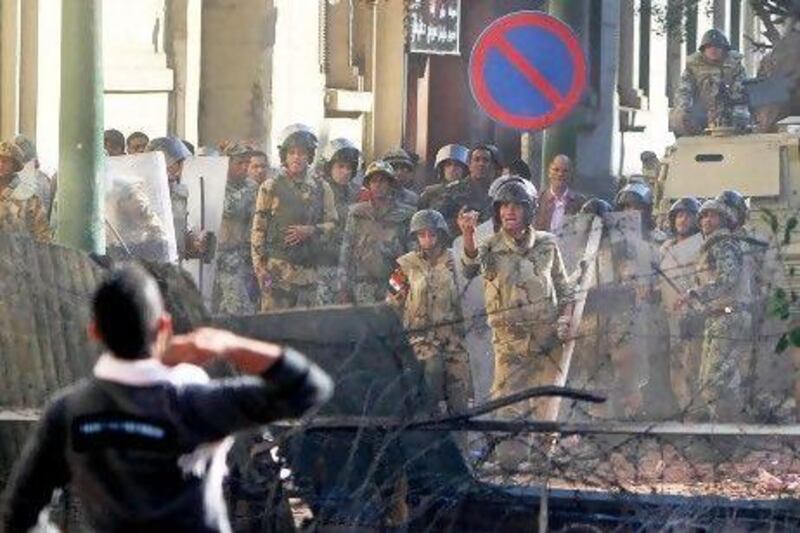Egypt's stock exchange plummeted after a fresh bout of violence rocked Cairo's streets yesterday, wiping 2.4 billion Egyptian pounds (Dh1.46bn) from the value of local stocks.
The main EGX30 Index of Egyptian stocks fell 3.4 per cent to 3,782.74 as protesters clashed with security forces for the third consecutive day, in a round of violence during which 10 people were killed.
The recurrent threat of street violence to market trading has now become a normal part of doing business, said Mohamed Seddiek, the head of research at Prime Securities.
"Whenever you have violence over the weekend, you find that the trading session is extremely hit," he said. "If it continues like this, I don't think the supreme council of the armed forces can handle all the pressure for too long."
The index has shed 47 per cent of its value this year as investors take flight from Egypt following the revolution which overthrew the government of president Hosni Mubarak in February.
Shares in Commercial International Bank in Egypt fell 4.9 per cent to 20.59 pounds each.
Orascom Construction Industries, the country's biggest builder, lost 3.7 per cent to 204.08 pounds, while Telecom Egypt sank 3.6 per cent to 13.45 pounds.
The sell-off came as the Egyptian finance ministry failed to meet a fundraising target in a bond issuance, falling 1.19bn short of its target of 3.5bn pounds.
Egypt's government's cash reserves have dwindled in the months following the revolution.
The central bank of Egypt reported that net international reserves had fallen by US$15.9bn (Dh58.4bn) from the start of the year to $20.1bn at the end of last month.
The Egyptian government met yesterday to discuss how to reduce a deficit of about 10 per cent of GDP, Bloomberg News reported.
Initial government estimates for Egypt's budget had proved overly optimistic, said Jean-Michel Saliba, an economist for the Middle East and North Africa at Bank of America Merrill Lynch.
"The big news is whether they will be able to implement some austerity measures," he told Bloomberg News.
Moody's Investors Service, the ratings agency, warned last week that the political uncertainty over Egypt was a "credit negative" for the country.
"Continued political instability and the transitional role of the new government suggest that financial stability and investor confidence will remain elusive," Mathias Angonin, an associate analyst in Moody's sovereign rating group, wrote in a research report.
"Egypt's external payments position continues to deteriorate in the post-revolution era," the report added.
"The economic downturn in Europe is compounding pressure on Egypt's balance of payments from domestic political turmoil."
twitter: Follow our breaking business news and retweet to your followers. Follow us






